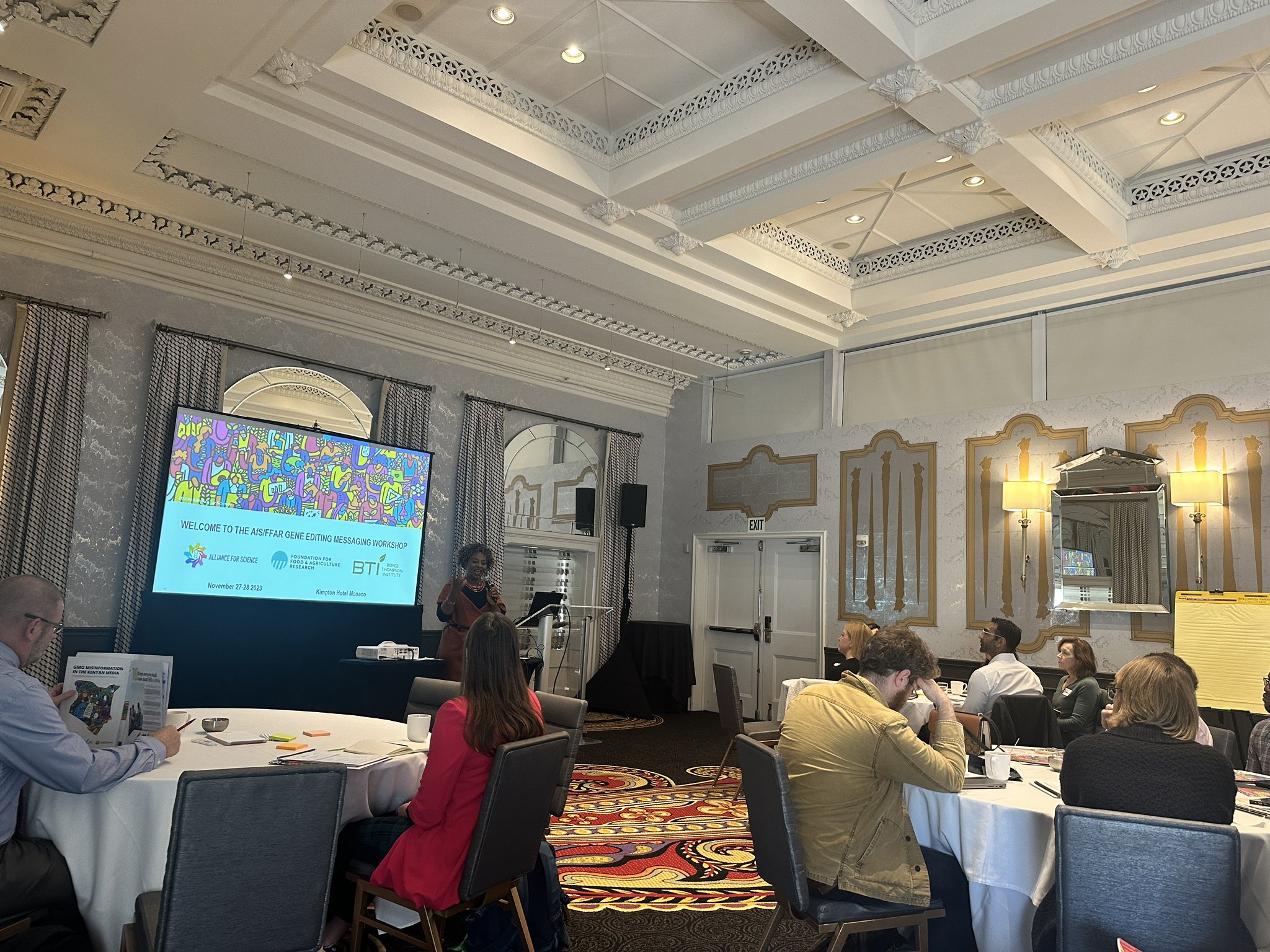Professor of Science Communication at the University of Georgia, Dr Alexa Lamm, has urged scientists who communicate about food and agriculture to prioritize creating value-based messages.
She said human beings are exposed to an overload of information, averaging 34 gigabytes daily, hence the need for scientists to focus on value-based messages to get the public’s attention. “Technology has advanced so quickly, and the human mind can’t handle processing information,” she said.
Dr Lamm said value-based messaging is a sure way to reach the public with appropriate scientific communication messages on advanced technologies like gene editing, which consumers consider personal because such innovations impact the food they eat.
“Creating value-based messages based on the audience is the foundation of everything,” she said. “Knowing who they are, knowing what they care about, what they value, and then creating a message that resonates with that, introducing it on a channel that they use… and it needs to come from a source that they trust and that they believe in, and that they feel connected to…”
Message development framework
She was speaking at a Gene Editing Message Development Workshop in Washington DC, USA, organized by the Alliance for Science (AfS) and the Foundation for Food and Agriculture Research (FFAR). The workshop introduced participants to a Gene Editing Toolkit developed by AfS and FFAR, which contains science communication best practices and a message development framework.
The toolkit’s primary objective is to combat misinformation and disinformation surrounding gene editing by empowering scientists, communicators, and professionals to develop value-based messages that can effectively connect with their target audiences.
Value-based communication is a strategic approach to sharing scientific evidence without causing unnecessary polarization and encouraging dialogue. It involves connecting with your audience through shared values, attitudes, outlooks, goals, and worldviews.
Unique opportunity for stakeholders
Dr Lamm said two things bring people from all walks of life together regardless of their backgrounds and political leanings: food and water.
“As a human population, we all have to eat. We all have to drink water. And this means we can come together. We can find common ground. This is really good news for us. Because as we think about agriculture and the environment, these are two things that we should all want to protect,” she said. “We all want to eat healthy, nutritious food. We all want access to clean water and a safe planet for a strong environment. And gene editing is one of the main ways we can get there together. But we have to find that common ground. And that’s not going to come from judging each other. That will come from being curious and having conversations with each other.”
Participants in the workshop include graduate students, scientists, government officials, industry players, and other actors in the gene editing space.

Dr Sheila Ochugboju, the Executive Director of the Alliance for Science, said the workshop provides a unique opportunity for these stakeholders to come together to hone their communication skills.
“We think it’s important to be intentional and precise in how we hold our communications, and we think it’s important because communication is the only way to find common ground. We’re never going to get to a place of consensus agreement or even just peace without communication,” she said. “It’s about values. When it comes down to our values, we all have a common ground. We all want the same things. We want justice, we want peace, we want access to nutritious food, and we want our children to live long, healthy lives. Everybody wants that. That is a common ground where we can start a conversation with anybody who’s on the other side of the divide.”
Colleen Klemczewski Daniel, Deputy Director of Communications at the FFAR, said the gene editing toolkit is an amazing resource that can empower participants to communicate more clearly. “This is a really good resource to kind of tailor to different audiences to make sure that when you’re talking about your research to different audiences that may not have the same scientific background, it resonates with them,” she said.
MAIN PHOTO: Professor of Science Communication at the University of Georgia, Dr Alexa Lamm, addresses participants at the Gene Editing Message Development Workshop in Washington DC, USA.
